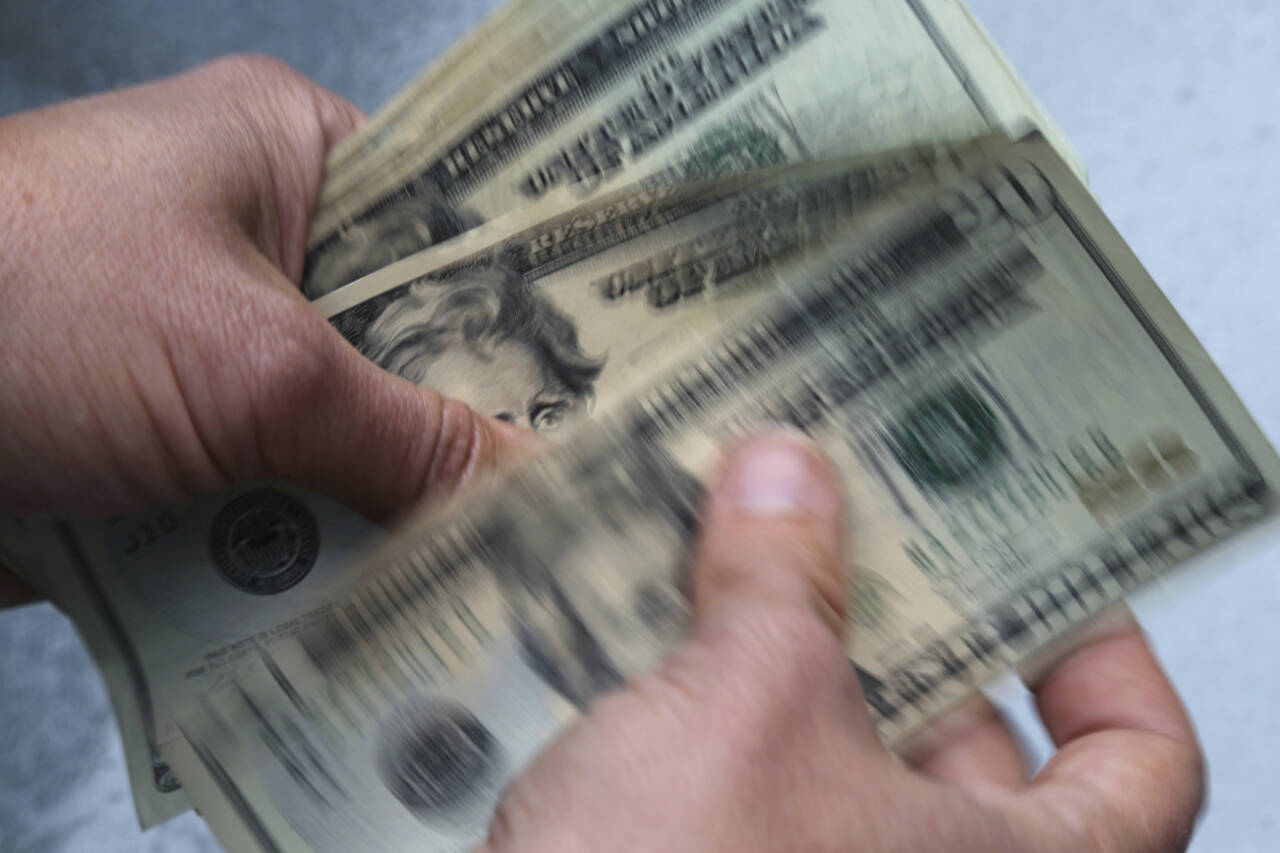By The Herald Editorial Board
Aside from feeding coins and dollar bills into a vending machine for a soft drink or bag of chips — assuming you can smooth out the creases from the buck enough to be accepted — most of us have long made the transition to what’s been dubbed the “cashless society.”
Prompted to pay at the pump, the grocery store, the restaurant or coffee shop, most pull out a card or tap open their phone to pay. For both consumer and merchant, it’s easier, quicker, safer and healthier than carrying, handling and exchanging folding money and pocket change.
And even more of us made that switch during the covid pandemic, perhaps unnecessarily, at least when it came to the virus. Although the coronavirus that causes covid-19 is unlikely to be spread through handling cash and coins, a range of other diseases — including salmonella, E. coli, S. aureus, the flu, colds and more — can be more easily transmitted on them and justifies cash’s “filthy lucre” nickname.
Key to going cashless, of course, is having access to a bank, credit union or other financial services that allow for checking, debit and credit accounts. And as of 2021, nearly 96 percent of U.S. households were “banked,” according to the Federal Deposit Insurance Corporation, the federal agency that insures depositors’ funds and regulates the banking industry. The federal government’s distribution of covid relief funds to individual Americans prompted at least 1.2 million more households to “get banked,” between 2019 and 2021, the FDIC said.
Still, a significant number of Americans remain unbanked, about 4.5 percent, or 5.9 million U.S. households; and in Washington state about 3 percent — 225,000 residents — are unbanked. However, the rates of those who are without access to banking services are higher among minorities, the FDIC said. Where only 2.1 percent of white households in the U.S. were unbanked in 2021, 11.3 percent of Black households and 9.3 percent of Hispanic households were without banking services.
So, cash remains king — or the only option — for a few. And those issues of equity in access to financial services are reason to support a proposed Snohomish County ordinance, promoted by County Council Member Nate Nehring, that would require merchants in the county’s unincorporated areas to accept at least the first $200 of a transaction in cash, a limit that would allow most transactions for food and other basic services to be available to those with cash only.
Prompted by an email from a constituent who said their daughter had been unable to make a purchase with cash, Nehring proposed an ordinance similar to others in the state and throughout the nation.
“The dollar is legal currency in the country, so I think it makes sense for people to have that option when they’re making transactions,” Nehring told a Herald reporter last week.
More and more merchants, however, are moving ahead with plans to empty their tills for good, including the Everett Clinic, Angel of the Winds Arena, Funko and the Everett AquaSox, although those businesses, all located within Everett or other cities would not have to comply with the county ordinance.
Nehring is providing reasonable flexibility to the ordinance, and is considering amendments that would provide exceptions for farmers markets or in the event of a public health emergency. Another provision in the proposed ordinance, which has a public hearing scheduled for 10:30 a.m. Sept. 20, would allow retailers to decline cash payments if they provide a fee-free device or kiosk that would accept cash in exchange for a prepaid card for goods or services.
Similar provisions can also be considered should cities in the county also take up the issue for their own ordinances. As they should.
There are good reasons beyond convenience to encourage use of accounts provided by banks, credit unions and other financial services. The FDIC, on its #GetBanked website notes that having such accounts allows for quicker and safer receipt of tax refunds, paychecks and other payments, the ability to open savings accounts and avoiding fees for cashing checks.
A happy coincidence of the increase in banked Americans includes a decrease in the use of check-cashing and nonbank loans, such as payday and pawn shop loans, which often charge high fees and interest rates and can use predatory practices. Unbanked households’ use of nonbank check cashing fell from 30.2 percent in 2017 to 21.8 percent in 2021, the FDIC reported. And, use of nonbank credit also declined. In 2017, 7.4 percent of households had used at least one nonbank credit product tracked by its survey. In 2021, that share fell to 4.4 percent of households using those same products.
The banking industry itself can assist in the cashless transition as well, by offering fair limits for minimum deposits to open accounts and providing ample notification on fees and overdraft policies. Those who are opening a checking or savings account can use a checklist to help them find the best fit, provided by the U.S. Consumer Financial Protection Bureau at tinyurl.com/CFPBchecklist. The Washington state Department of Financial Institutions offers more information for banking consumers at tinyurl.com/WaBankBasics.
Even with all its advantages, a “cashless” society isn’t yet readily available to all. And some may prefer to stick with cash for a number of reasons. So, as long as the words “legal tender for all debts, public and private,” remain next to Washington, Lincoln, Hamilton — and perhaps some day Harriet Tubman — some ability should remain to spend greenbacks and pocket change.
Talk to us
> Give us your news tips.
> Send us a letter to the editor.
> More Herald contact information.

























